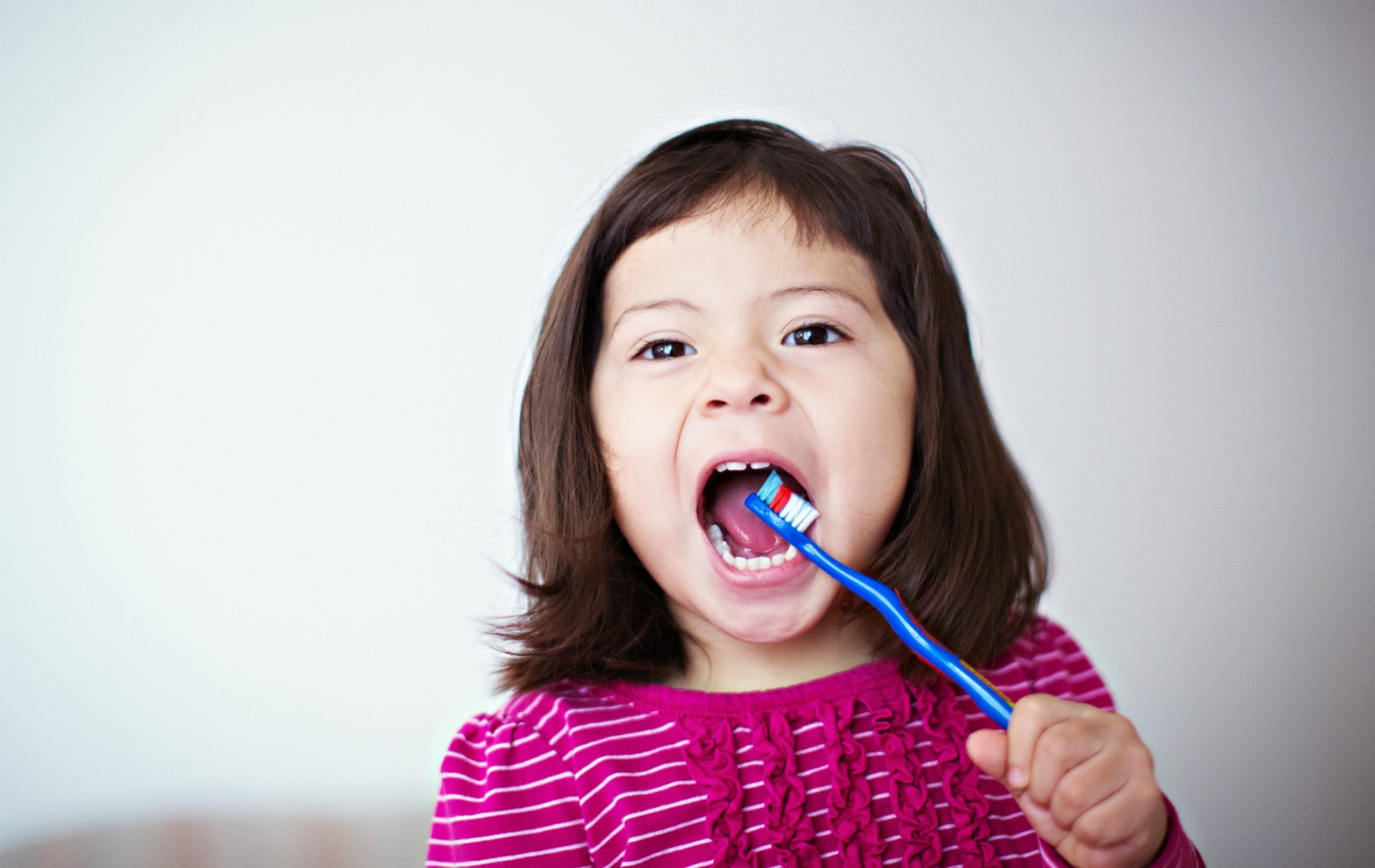5 easy steps to help you care for your child's baby teeth
New research shows that 79% of parents don't take their children to the dentist when they should. Good dental habits last a lifetime, follow our tips to make sure your child has a lovely smile...


Your child's baby teeth may only last for a few years, but the good dental habits you teach now will last a whole lifetime.
A new study by Denplan has found that 79 per cent of parents don't take their children to the dentist at the right time - with 5 per cent waiting until they turn five.
Here are some easy, positive ways you can care for your child's baby teeth, starting today, including when to plan that first trip to the dentist...
1. Give them lots of calcium
Calcium is the building block for developing and protecting strong teeth. It's in milk, cheese and yogurt or, for a dairy-free alternative, try sardines.
But do check the labels on yogurt and fromage frais pots for sugar or sucrose, as these won't do your child's baby teeth any favours. If you're pregnant, it's important for you to eat more calcium, as your baby's milk and adult teeth are formed in the womb.
2. Use a fluoride toothpaste
Fluoride in toothpaste is the main reason why tooth decay has been slashed by 50 per cent in the last 30 years. It works by strengthening the tooth enamel that helps protect it from decay. Be sure to use a pea-sized amount of children's toothpaste, as adult brands contain too much fluoride for little ones baby teeth.
3. Brush your teeth with them
If your kids see you brushing your teeth, they're more likely to want to do it themselves. 'Let your child see you brushing your teeth, as kids love to copy their parents,' says dentist Graham Wilding.
GoodtoKnow Newsletter
Parenting advice, hot topics, best buys and family finance tips delivered straight to your inbox.
However, be wary about brushing after every meal. Recent reports suggest that dentists are seeing more and more cases of acid erosion, because people are brushing their teeth too soon after eating acidic foods.

4. Give them water or milk
Fruit juice, squash and fizzy drinks contain acid which, over time, wears away the tooth enamel, making teeth sensitive to hot and cold and more prone to decay. Always dilute the juice really well, and it's a good idea to restrict it to mealtimes only. Giving your child a drink of water or milk after a sweet pudding will help to neutralise the sugar acid in their mouth and stop it attacking their baby teeth.
5. Take them to the dentist
Register your child with a dentist as soon as their first milk teeth appear. 'Take them with you to the dentist from an early age, so it doesn't seem frightening. It will help them get used to the sights and sounds,' says dentist Graham Wilding. Once your child is about two and a half, make sure they have regular dental check-ups every six to 12 months.
Caring for your child's baby teeth: other vital things to consider
- Check labels for hidden sugar, especially sucrose.
- Buy unprocessed foods to be on the safe side.
- Swap biscuits and sweets for healthy snacks such as chopped fruit and sticks of vegetables.
- Avoid fizzy drinks, they're really harmful to teeth.
- Give small toys or stickers as rewards instead of sweets.
- The best time to give sweets is after dinner, as you'll soon be brushing your child's teeth.
- Chocolate is better than sweets, but lollies are the worst because they bathe teeth in sugar for a long time.
- Check that whoever looks after your child (nursery, childminder, grandparent) follows your rules, too.
When do little ones stop teething?
Most babies start teething and get their first tooth at around six months. The majority of their primary teeth are through by around two and a half. The first permanent second teeth come through at the back at around six.

Mariana is a lifestyle writer who has written for Goodto.com and My Imperfect Life. She joined the Goodto.com team as an intern after completing her journalism MA at City University. After six months spent writing about food, celebrity news, and family trends, Mariana left to write for Healthy Food magazine - but returned in 2017, to join the Future team once again. In her spare time, you’ll find Mariana in the kitchen cooking for her friends.